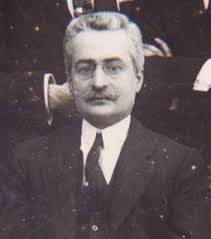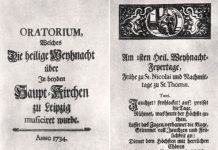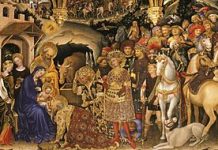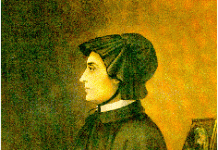On November 16th we, as a Church, celebrate the feast day of Saint Joseph Moscati, or, as he is commonly known by many who have a strong devotion to him, “the Holy Physician of Naples”.
Joseph Moscati was canonized by St. John Paul II in 1987. As many would remember, this was also the year when the Church dedicated to the laity in their involvement in the great work of evangelisation. In fact, in that year, the Church showed her duly maternal appreciation to her lay faithful by first organizing a special synod at the Vatican, purposely on the vocation and the mission of the lay faithful, in both the Church and the world. The need was deeply felt that lay people would be empowered by the Church not only to keep alive, but to increase, their living of their splendid and unique vocation, namely to be the salt and light of the world. As Jesus commands in the in the Matthean Gospel: You are the salt of the earth; but if salt has lost its taste, how shall its saltness be restored? It is no longer good for anything except to be thrown out and trodden under foot by men. You are the light of the world. A city set on a hill cannot be hid. Nor do men light a lamp and put it under a bushel, but on a stand, and it gives light to all in the house. Let your light so shine before men, that they may see your good works and give glory to your Father who is in heaven (Matt 5:13-16).
The result of this important synod was the post-synodal apostolic exhortation called Christifideles laici which reinforced the irreplaceable importance of lay people within the Church and outside of her too.
A very pivotal point, which has been rightly stressed throughout this significant Church document, which tackles the Church in her very roots, is the following: holiness and the Christian vocation are inseparable. One essentially leads to, forms and strengthens the other. Christifideles laici speaks at lenght about this vision when it says:
It is ever more urgent that today all Christians take up again the way of gospel renewal, welcoming in a spirit of generosity the invitation expressed by the apostle Peter “to be holy in all conduct” (1 Pt 1:15). The 1985 Extraordinary Synod, twenty years after the Council, opportunely insisted on this urgency: ‘Since the Church in Christ is a mystery, she ought to be considered the sign and instrument of holiness… Men and women saints have always been the source and origin of renewal in the most difficult circumstances in the Church’s history. Today we have the greatest need of saints whom we must assiduously beg God to raise up’.
Everyone in the Church, precisely because they are members, receive and thereby share in the common vocation to holiness. In the fullness of this title and on equal par with all other members of the Church, the lay faithful are called to holiness: ‘All the faithful of Christ of whatever rank or status are called to the fullness of Christian life and to the perfection of charity’. ‘All of Christ’s followers are invited and bound to pursue holiness and the perfect fulfillment of their own state of life.’
The call to holiness is rooted in Baptism and proposed anew in the other Sacraments, principally in the Eucharist. Since Christians are re-clothed in Christ Jesus and refreshed by his Spirit, they are ‘holy’. They therefore have the ability to manifest this holiness and the responsibility to bear witness to it in all that they do. The apostle Paul never tires of admonishing all Christians to live ‘as is fitting among saints’ (Eph 5:3).
Life according to the Spirit, whose fruit is holiness (cf. Rom 6:22;Gal 5:22), stirs up every baptized person and requires each to follow and imitate Jesus Christ, in embracing the Beatitudes, in listening and meditating on the Word of God, in conscious and active participation in the liturgical and sacramental life of the Church, in personal prayer, in family or in community, in the hunger and thirst for justice, in the practice of the commandment of love in all circumstances of life and service to the brethren, especially the least, the poor and the suffering” (no.16).
In no other saint can I see these prophetic words of Christifideles laici happily fall into place than in the life of St. Joseph Moscati, this great doctor with a huge heart, who used his profession not to enrich himself from the poor’s pockets but rather to enrich them by giving himself fully to them. His is truly a life of remarkable generosity! His living witness of Christ as the Good Samaritan, remains an outstanding icon of what Christian love really is. His human and gospel approach toward his patients and even to the countless number of students, whom he magnificently taught at Naples University, shows that holiness is part and parcel with being and rendering sound professional service. St Joseph Moscati’s life enfleshes a reflective thought he used to share with his students: “Not science but charity has transformed the world”.
Born on July 25 1880, in the southern city of Benevento in Italy, the young Giuseppe felt attracted to pursue his father’s legal career. However, after his brother Alberto fell of from a horse during military service and suffered from an irreversible head trauma, Giuseppe changed his mind and dedicated himself for the study of medicine. His excellent Catholic upbringing convinced him that being a doctor means to serve, first and foremost, the poor. And that is precisely what he did in his medical profession. When he saw that a patient could not afford his medication or did not even have food to eat, he himself would provide that person the food, money and medication that person direly needed. Giuseppe’s life story tells us that he would even leave money under the pillow of poor people, so as not to make them feel embarrassed by his generosity.
But what was the source for this perfect fulfilment of his own state of life? His humble and devout adherence to Christ through the Catholic faith consolidated his beautiful relationship with God. Even if surrounded by the agnostic and anti-clerical environment that circulated at the University of Naples of his time, Giuseppe was focused on Jesus. He faithfully attended Mass daily, thus making the Eucharist the centre of his professional life. Before he carried out his medical duties, he always prayed fervently for God’s help. He would also suggest to his patients to frequent the sacraments, as he personally knew the great spiritual power they give to those who receive them with the heart of a child (Prov 22:15), thus becom[ing] like children and entering the kingdom of heaven (Matt 18:3). His filial devotion to Mary kept him focused and assiduous on the holiness path.
As cases of covid-19, along with so many other illnesses, keep surging steadily around the globe, let us show our appreciation by thanking and praying for our doctors and and health care workers who, like St. Joseph Moscati, are rendering heroic service which is the first fruit of authentic holiness. May they continue, as Pope Francis said in his address to doctors, nurses, and healthcare workers from the Lombardy region on Saturday 20 June 2020, being “visible signs of humanity” that warm the heart. Even if “many of them became sick and sadly, some died in exercising their profession” they have been and still are, living “witnesses of [the Father’s] … closeness and tenders” towards his suffering children.
Like St. Joseph Moscati, who died at the young age of 46 years and eight months in 1927, they are faithful labourers of the Lord’s vineyard in our present troubling times.











